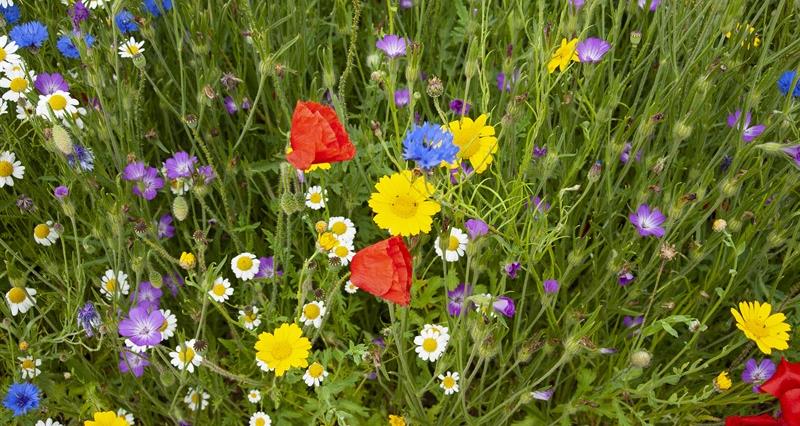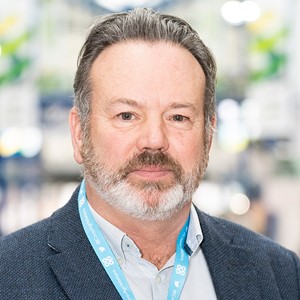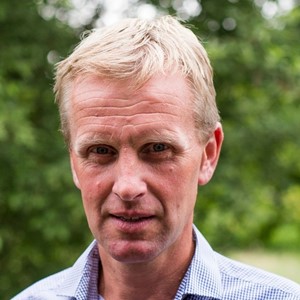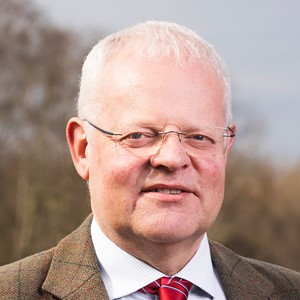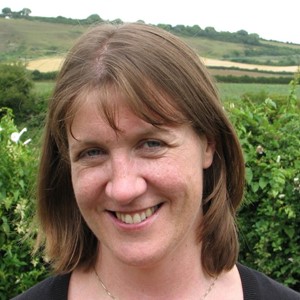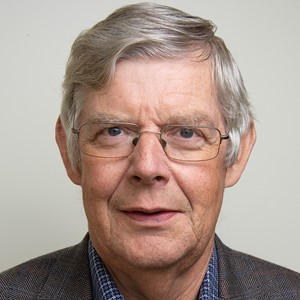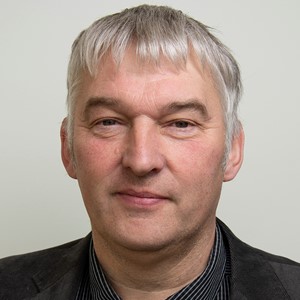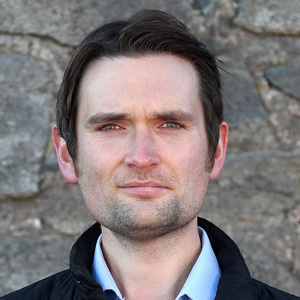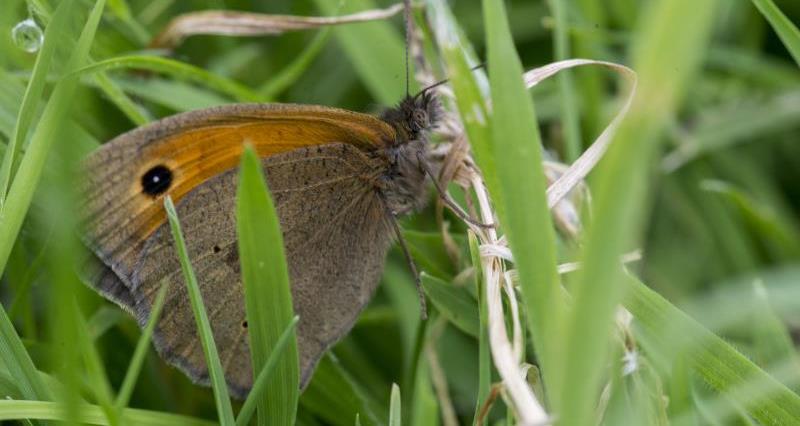The NFU Environment Forum meets quarterly and when specific issues need attention, to discuss environmental issues which affect farming.
For the 2021-2023 term, the forum will be looking at landscapes and trees; and a more integrated approach to water and the need to have flexible management options to help improve the productivity of our soil.
Net zero and climate change will also be on the agenda, with farming very much as part of the solution. Public responsibility is an area of discussion too.
Read more on the NFU Environment Forum's priorities.
Meet the forum
Richard Bramley
NFU Environment Forum chair
He invests in his own professional development and is a Fellow of Institute of Agricultural Management, a qualified agronomist and a CEnv (Chartered Environmentalist).
Richard is also actively involved with university research and education.
Alongside his arable operations, Richard is involved in a diverse range of environmental work on his farm, which began on a largely voluntary basis.
All watercourses are protected with 7m diverse margins and hedgerows are managed sensitively with roughly 12,000 of mixed hedgerow species types have been planted on Richard’s farm and 2,000 mixed trees.
He has approximately 8ha of grassland, which is mainly riverbanks and field corners, with no nutrient inputs, encouraging a diversity of plant species.
A number of bird and bat boxes have been put in place around the farm, and in the past he has installed vole pontoons, kingfisher fishing stakes and a grass snake nest.
Since 2007, Richard has used 'cover cropping' on the farm, which is temporary crop and is used to preserve nutrients and protect soils at key times in the farming calendar, now covering over 50ha on one 200ha farm.
He has also worked in close conjunction with Yorkshire Water to protect water quality and improve the environment.
In addition, Richard grows between 7 and 8 different crop types which adds to the diversity on his farm. Twenty years of bird surveys have provided an important picture of the improvements this work has delivered.
Solar power generated on the farm provides 100% of electricity for Richard’s farmhouse, office and four luxury converted holiday barns and events room. All heating is provided using low energy biomass district heating.
Public engagement is important to Richard and he hosts visits for fellow farmers and other organisations with an interest in the countryside, as well as public speaking on farming and the environment.
Robert Brunt
NFU Environment Forum member, North West
In this traditional upland landscape, over the past 20 years, Robert’s family have repaired some traditional farm buildings and rebuilt over 1000m of dry stone walling. More recently help from a boundary grant scheme has enabled this restoration work.
Hedgerow management over the past few years has seen around 400m of hedge laying and restoration to provide habitats and food sources for wildlife.
Over 90% of the farm is classified as permanent pasture, with considerable areas of low nutrient input and zero input grassland, to encourage a diversity of plant species types, and corners of fields are left un-mowed to help encourage wildlife.
Good and efficient use of resources is also an important part of day-to-day consideration on Robert’s family farm. Significant investments have been made over the years, including in covering the slurry stores and a large open yard, which have helped reduce emissions such as methane and ammonia but also removed the need to build another slurry store.
Through making better use of the manure and slurry generated on the farm, Robert has halved the amount of artificial fertiliser used on the land to produce silage. It has also allowed Robert to increase the area of grazed land which receives no artificial fertiliser at all.
In addition, water in a plate cooler is used to pre-cool milk from parlour, so saving electricity. This same water is then reused for washing down the parlour or for drinking water for the cattle.
The heat recovered from a fridge is used to heat water used for washing and calf feeding, again saving Robert electricity.
The farm also produces 10% of its own electricity generated from solar power.
Robert said: "Farming has shaped our iconic upland landscapes and created one of the most important managed environments in the country. This landscape brings millions of people to the countryside every year, supporting local jobs in tourism and other local businesses.
"I believe I have an important role in helping manage and look after our beautiful landscape and countryside.
"Over the years, we have invested to improve productivity on the farm but also invested to increase efficiency in our use of nutrients, such as nitrogen. In a bid to do this, we have recently purchased equipment such as a trailing shoe spreader with the help of a grant scheme. This has reduced our environmental impact and footprint."
Richard Davis
NFU Dairy Board appointee, East | NFU Environment Forum member
Richard started farming in 1965 with only a handful of livestock. Over the years, Richard has made significant changes to the farm to improve the welfare of his cows and promote a more sustainable farming approach.
Richard is committed to sustainable and responsible farming and believes that improving soil health is key to ensuring the long-term sustainability of the farm and its impact on the environment. This is reflected in the farm's practices. Since 2013, his farm has used a grass-based system as they sought to improve the welfare of their cows and promote a more sustainable farming approach.
Richard’s farm has been members of Arla since 2016, and since 2022 has been one of the six pilot regenerative farms of Arla in the UK. The aim of the pilot is to farm regeneratively without losing milk production while trying to improve soil health.
Richard is using multispecies herbal lays to improve soil biology and root depth, and he is exploring the use of compost to enhance soil health. The farm is primarily focused on improving soil health, especially by increasing organic matter to improve water retention, which is especially important given the farm location.
In addition to farming, Richard is actively involved in the dairy industry. He was the Vice Chairman of the Dairy Co for five years and was a Director of First Milk for 15 years. Currently, he is a Director of Anglia Farmers. He has also held several positions in the NFU, including County Chairman for Bedfordshire, the NFU Regional Dairy Board Chairman, and the NFU Council.
Richard's future plans for the farm are focused on improving soil health and sustainability. He wants to continue farming regeneratively and look for ways to increase fungal activity in the soil.
Caroline Knox
NFU Environment Forum member
Arriving from Scotland as dairy farmers in 1983 they have had many changes in farming practice through fat lambs, large scale potato production with carrots, beetroot and cauliflower, returning to combinable crops in 2008; now growing maize and rye for a very local 6 MW biogas plant.
Land is also rented out for potatoes, cauliflowers and turf production.
Joining the ELS scheme in 2006 led to many field corners being taken out of production, extensive buffer strips created and a new perspective on soil management.
Caroline said: "Most significantly we truly assessed run off and soil loss. The land has many dry valleys which channelled water and soil, we introduced soil bunds and slow release mechanisms which quickly eliminated the problem."
In 2009, the farm invested in a minimum-tillage drill. Intending to reduce costs and preserve soil biodiversity, the equipment has led to very positive changes to their farms soil health. Building on this, Caroline is now trialling cover crops, companion cropping and under sowing cover crops to preserve soil and create a healthy habitat for future generations to farm.
"Although we were in the ELS scheme and are strong supporters of CFE we are currently not in a stewardship scheme. We are, however, planting winter bird feed areas in a rotational pattern. Approximately 10% of the farmed area out of production and we are supplementing these areas with adjacent planting, as well as our irrigation reservoirs which have developed into fabulous species rich wet lands within the farm. The island has little standing water due to the chalk aquifers, so all farm reservoirs provide unique landscapes here."
The island only hosts red squirrels so some 10ha of woodland have been planted in a jigsaw scheme to provide natural corridors. Now mainly mature, these are soon to host a species count by the forestry commission.
Caroline is a member of the Eastern Yar Cluster Group. The group has encouraged farmers in the valley to apply for grant funding to address the issue of riverside trees which are adding to soil erosion and river degradation. As part of this, the group coordinate catchment specific training days which this year led to a very satisfying amount of cover crops being grown throughout the valley.
Robert Lockhart
NFU Environment Forum member, West Midlands
Robert’s farm has been managed under an agri-environment scheme agreement for some 14 years, with a number of environmental features including the field margins and an area of recreated wetland.
Most of the farm is either managed under an Entry Level Stewardship (ELS) scheme, or a Higher Level Stewardship (HLS) scheme, with the exception of one field which is on the designated route for the HS2 line.
The line has not been constructed yet, but 3ha of land have been taken into temporary possession for environmental mitigation. HS2 have completed various environmental work on the area and Robert is to be compensated for crop loss.
Environmental actions under the Campaign for the Farmed Environment (CFE) are also practised on Robert's farm, such as leaving areas of land uncultivated next to the ponds and field corners, to provide habitat for wildlife.
With a watercourse next to every field on the farm, Robert has 6-8m field margins acting as buffers, and the farm has six natural ponds and two partially dry marl pits, providing habitat for wildlife.
Robert has invested in restoring hedging around the farm and undertaken some tree planting.
An area of the farm that was once a temporary radar station and accommodation huts during the Second World War is now an open space of 70 acres, attracting lapwings and skylarks.
Nectar and pollen mixes and wild flower mixes on the farm provide food for birds, bees, butterflies and other insects.
Some 15 years ago, Robert installed a 38,000 cubic meter reservoir. This has just under 2ha of open water, attracting birds and other wildlife and is winter filled, when water is most available.
"My ambition to increase growth in agricultural production, alongside protecting and enhancing the environment does not mean that should be at a cost to the environment," said Robert.
"I recognise that protecting the natural environment is important to my productive potential."
Hedd Pugh
NFU Environment Forum member, Wales
Hedd runs a flock of 1600 ewes which are predominantly Welsh Mountain together with a herd of 40 suckler cows. He has participated in agri-environment schemes for 25 years and during that time has planted over 2000 trees of native species; completed over 7000m of hedgerow restoration; established 1900m of streamside corridors; 250m restoration of dry-stone walls; 15ha stock excluded woodland; with 560ha enclosed mountain under active management for habitat improvement.
He is a keen participant in agri-environment schemes and said: "We farm in a stunning location. The Welsh landscape that we see and enjoy today – and which supports a diverse range of habitats and species – has been created, shaped and is maintained by farming activity over hundreds of years.
"It is very much a managed landscape and we recognise as farmers the wide range of public goods we provide. This not only includes high quality food but also wider benefits for biodiversity, carbon storage, clean water and energy generation."
Peter Shallcross
NFU Environment Forum member
Peter's farm has been in the family for 75 years, since Peter’s grandfather purchased the farm in 1948. The farm consists of 700 acres of rented and owned land, 200 acres of which is in arable, growing crops such as maize, barley, wheat, and beans. Peter has 220 crossbred and Norwegian Red Cross dairy cows on his farm.
Although farming has always been Peter's profession, his first love was wildlife conservation. Peter has implemented habitat schemes on his farm and has participated in Higher Level Stewardship and Mid-Tier schemes. Peter has planted hedges along almost all of the farm's boundaries and created lapwing plots, nectar plots, and birdseed mixes to provide different habitats for wildlife. Peter is also interested in Cricket Bat Willow, a special cultivar that is very saleable and will provide a different habitat for wildlife along the River Nadder.
Peter's farm hosts the Kingfisher Award Scheme run by Farming and Wildlife Advisory Group (FWAG), and Peter is the chair of the local Natural History Society. From this, Peter leads walks on his farm and on other farms where members come to share their passion for conservation. Elm trees are also Peter’s passion and hobby, where he has planted these trees on his farm to provide a habitat for the white letter hairstreak butterfly and provide a second income for the farm. Peter has won awards for his conservation efforts, including the Wiltshire Life Award for Conservation Project of the Year for his reintroduction of Elm trees and the Silver Lapwing award. In addition, Peter also sits on the board for Tisbury Nadder Energy, an energy movement in which energy generation is owned not by large industrial companies but by local communities.
In recent years, Peter has embraced regenerative farming practices to be more sustainable. He has stopped ploughing and now has permanent pasture with herbal lays. Peter aims to reduce the use of fertilisers and uses spot spraying instead of boom spraying for weed management. With his passion for conservation and regenerative farming practices, Peter is an excellent example of how farming can coexist with nature, promoting sustainability and biodiversity.
Joe Stanley
NFU Environment Forum member
For over 12 years, Joe farmed at home on a mixed arable and livestock farm, gaining valuable experience in dairy, beef, arable, and sheep, before moving to the Allerton Project, a 320-hectare research and demonstration farm located on the border between Leicester and Rutland. Joe joined the Allerton Project in 2021 and currently has the role Head of Training and Partnerships. Joe is also the County Chair for Leicestershire Northamptonshire and Rutland and sits on the East Midlands Crops Board.
The Allerton Project has been at the forefront of promoting sustainable farming practices for over 30 years. As a research and demonstration farm, it has pioneered many of the approaches that are now being encouraged under the UK's Environmental Land Management scheme (ELMs). For example, the project developed and pioneered techniques such as beetle banks, supplementary feeding, and pollen and nectar mixes, which are now being widely used to promote biodiversity in farming. The project is also currently leading research into soil health and soil carbon, which is becoming increasingly important.
Joe is passionate about the integration of ecosystem services within the farm system. This involves bringing nature and farming closer together, rather than treating them as separate entities. Joe believes that integrating ecosystem services, such as water storage, carbon sequestration, and pollination, into the farm system is essential for promoting long-term sustainability in agriculture. This approach has been a key focus of the Allerton Project's work in recent years.
In addition to his work at the Allerton Project, Joe is a published author and regular contributor to Farmers Weekly and the NFU Countryside Magazine. His book, "Farm to Fork: The Challenge of Sustainable Farming in 21st Century Britain," provides a non-farming audience with insights into the basics of modern, British agriculture and the key issues facing the industry today. Joe's goal is to disseminate the information that the Allerton Project has collected over the last 30 years to help farmers transition to more environmentally sustainable practices.
Overall, Joe Stanley is a highly respected figure in the UK agricultural sector, known for his expertise in sustainable farming and his commitment to promoting long-term sustainability in the industry. His work at the Allerton Project and in the wider agricultural community has had a significant impact on the development of sustainable farming practices in the UK, and he continues to be a leading voice in the conversation about the future of farming in the country.
